- Government of Montenegro
Ministry of Education, Science and Innovation Forum dedicated to establishing centres of excelle...
Please note: The page below represents the archived content relating to the previous Government of Montenegro. Some of the information might be inaccurate or outdated.
Archive
Forum dedicated to establishing centres of excellence in Montenegro: Success stories from the region and Europe as encouragement to the research community
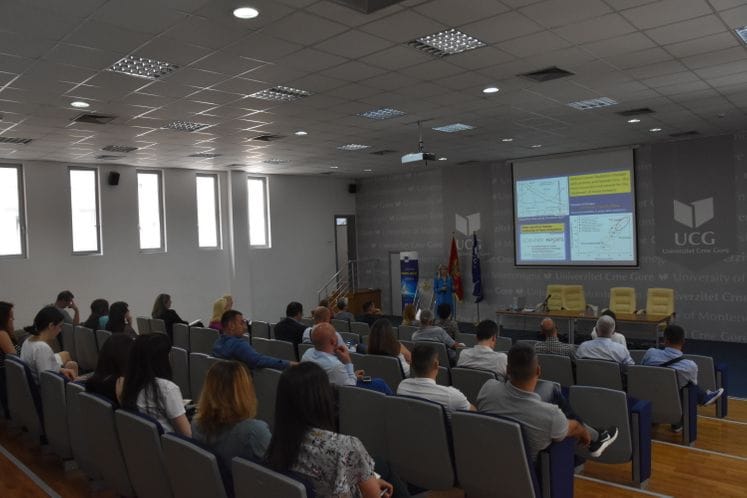
Published on: Jun 12, 2018 • 2:21 PM Author: Ministry of Science
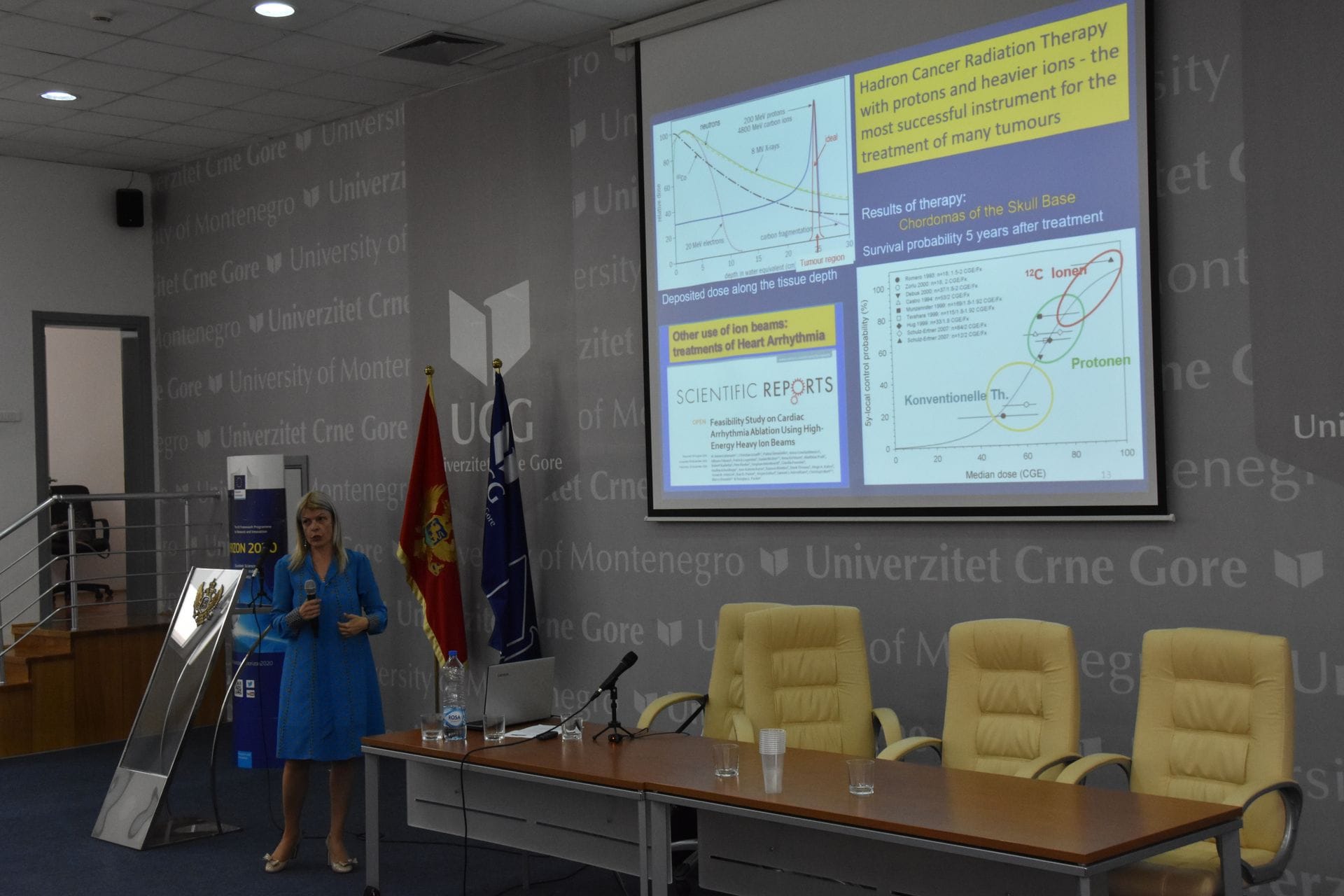
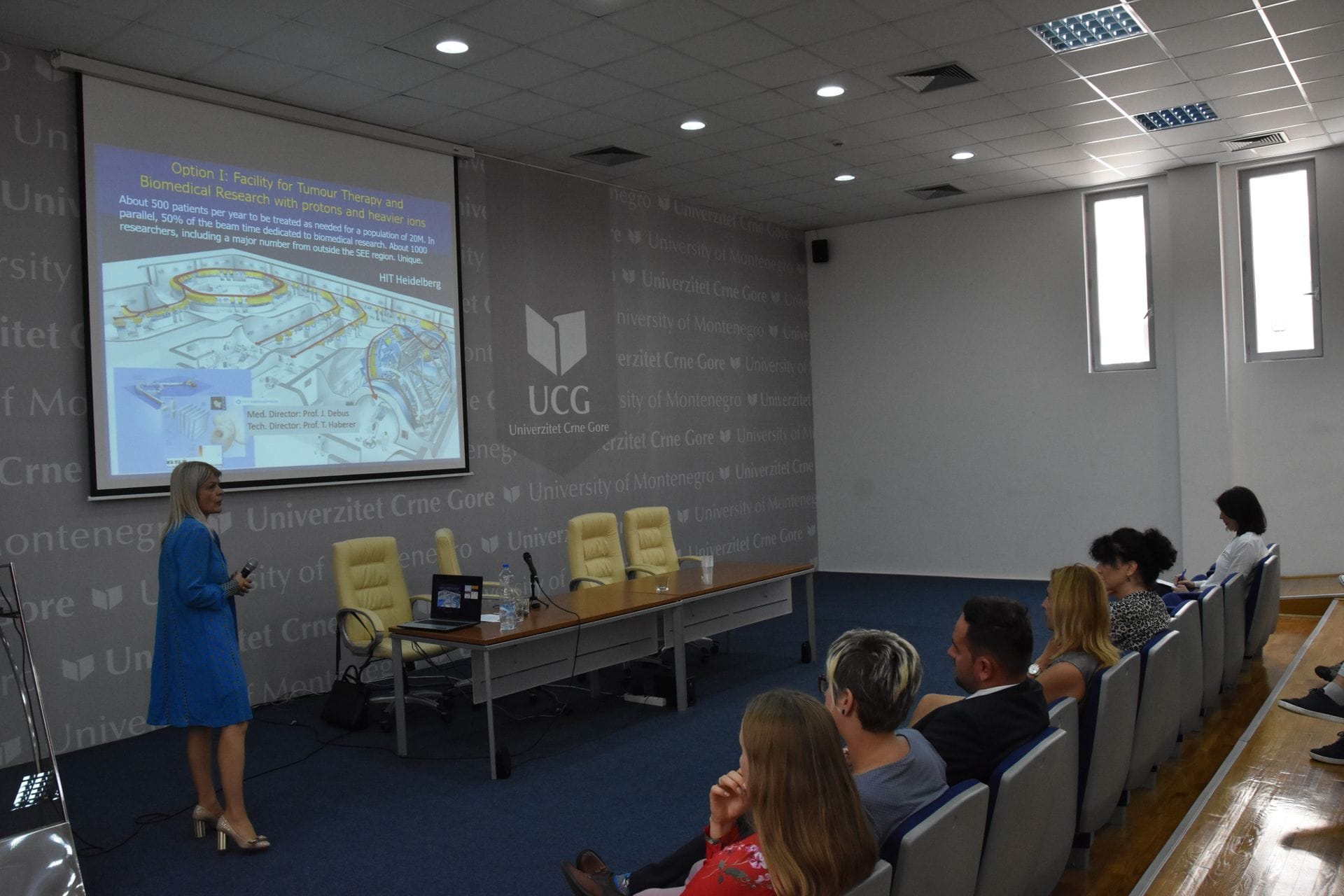
A forum dedicated to establishing centres of excellence in Montenegro was held today at the Rectorate of the University of Montenegro, providing the participants with the opportunity to learn about success stories from the region and Europe, as well as about the challenges and risks in building scientific excellence.
The forum was opened by Katarzyna Walczyk-Matuszyk – Project Coordinator in the Transnational network of National Contact Points (NCP H2020 Widening), who reviewed the important building blocks of the centres of excellence, the critical mass, the research agenda, the integration of complementary skills, the dynamics of innovation systems, a high level of international recognition and stability – which centres of excellence must possess in order to be successful and sustainable. She also presented a case study – the International Institute of Molecular and Cell Biology in Warsaw, which successfully obtained funding from EU funds through collaborations for years, cooperating with international companies and having about 140 employees, one third of which were doctoral students.
A special guest of the forum was Prof. Vesna Crnojević Bengin, one of the founders of the BioSense Institute, the first institution to receive a Teaming project from one of the most powerful financial instruments in the EU research fund – Horizon 2020.
The forum was opened by Katarzyna Walczyk-Matuszyk – Project Coordinator in the Transnational network of National Contact Points (NCP H2020 Widening), who reviewed the important building blocks of the centres of excellence, the critical mass, the research agenda, the integration of complementary skills, the dynamics of innovation systems, a high level of international recognition and stability – which centres of excellence must possess in order to be successful and sustainable. She also presented a case study – the International Institute of Molecular and Cell Biology in Warsaw, which successfully obtained funding from EU funds through collaborations for years, cooperating with international companies and having about 140 employees, one third of which were doctoral students.
A special guest of the forum was Prof. Vesna Crnojević Bengin, one of the founders of the BioSense Institute, the first institution to receive a Teaming project from one of the most powerful financial instruments in the EU research fund – Horizon 2020.
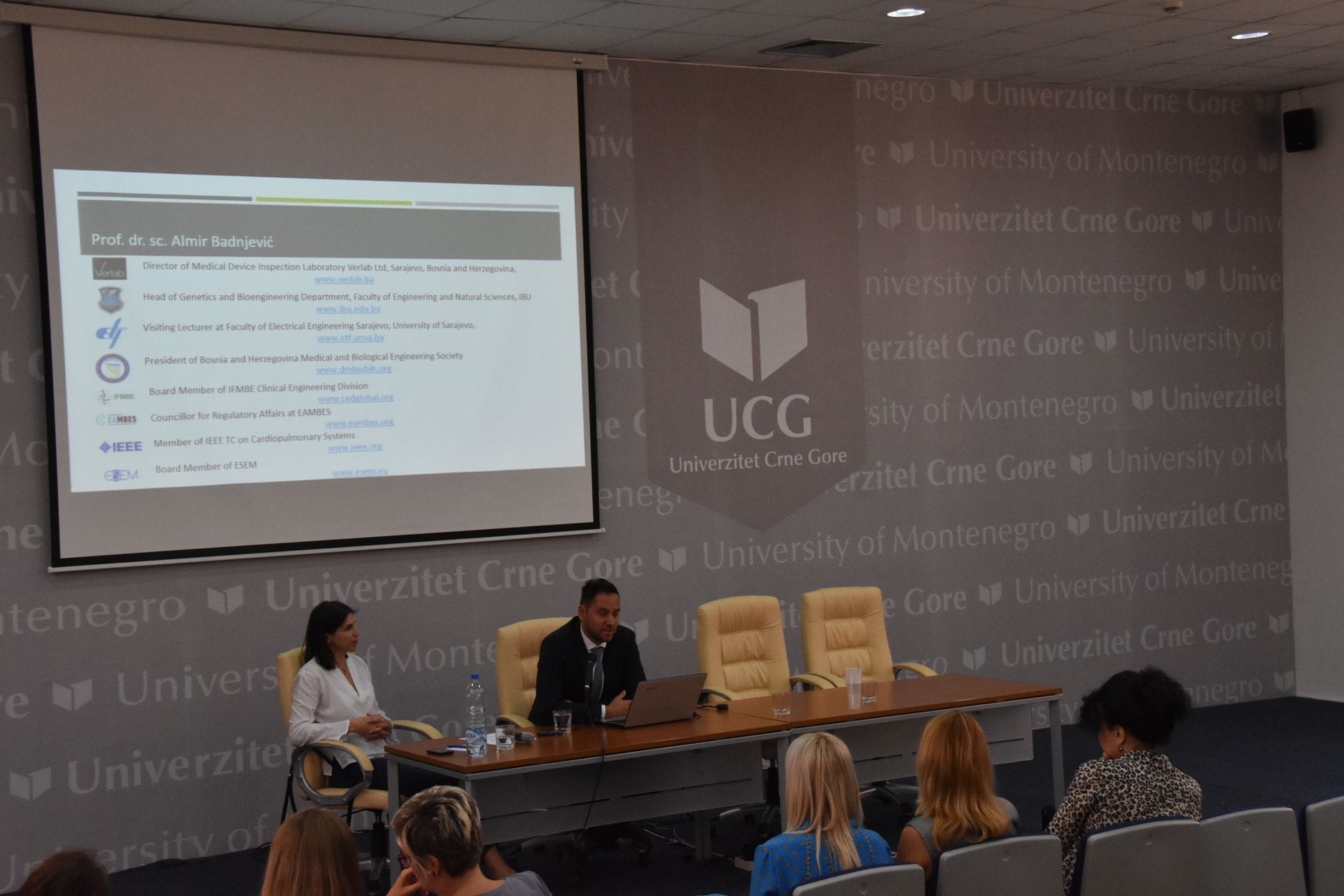
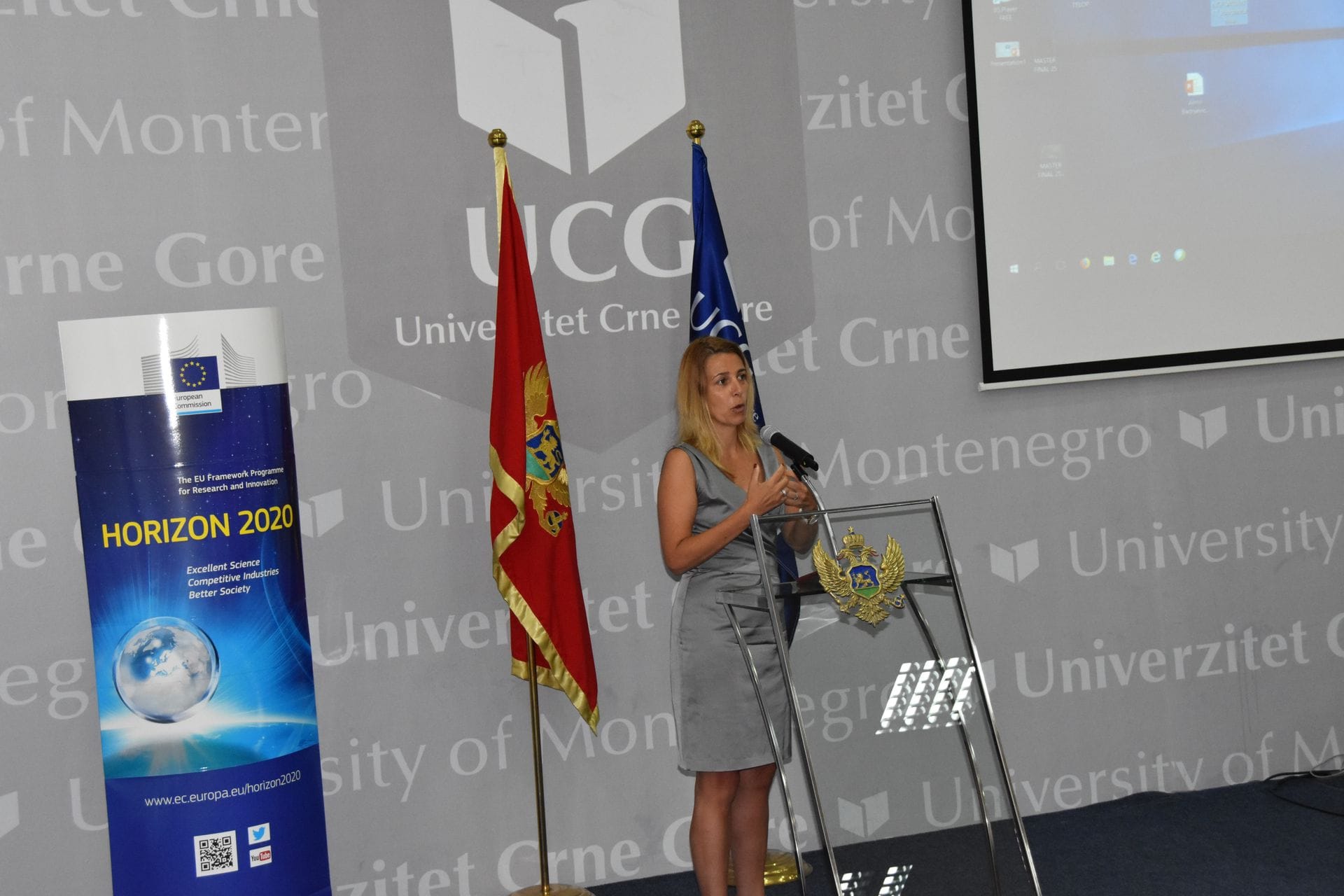
With a budget of EUR 28 million, of which 14 million accounts for a grant from EU funds, the Antares project focuses on the development of sustainable agriculture as the most important industry segment. A group of researchers led by professors Vesna Crnojević Bengin and Vladimir Crnojević achieved excellent results in the application of information technologies in agriculture and food production in previous years. The AgroSens digital platform, whose basic services are free of charge for all farmers, enables a mobile phone to become a tool through which timely, geographically precise and relevant information on agricultural production activities is exchanged.
In her address today, Professor Crnojević Bengin pointed out that the Western Balkans research community had knowledge and potential, but that it needed courage to pursue its vision. Scientific-research community ought to be aware of the needs of the industry, offering adequate solutions because its primary mission in contemporary world must be to strengthen the industrial and economic potential of a country. When it comes to innovation, consideration ought to be given to product sustainability and impact on society at all times.
Prof. Almir Badnjević, a delegate in the European Alliance for Medical and Biological Engineering & Science (EAMBES) and one of the advisers in this convocation for issues of regulations, directives and standards in this field, with a special focus on medical devices, shared his experiences in developing a new research area in Bosnia and Herzegovina and in training. The International Federation for Medical and Biological Engineering rewarded the research and the paper written by Prof. Badnjević and several young scientists, declaring it the best in the world in the field of clinical engineering for 2018.
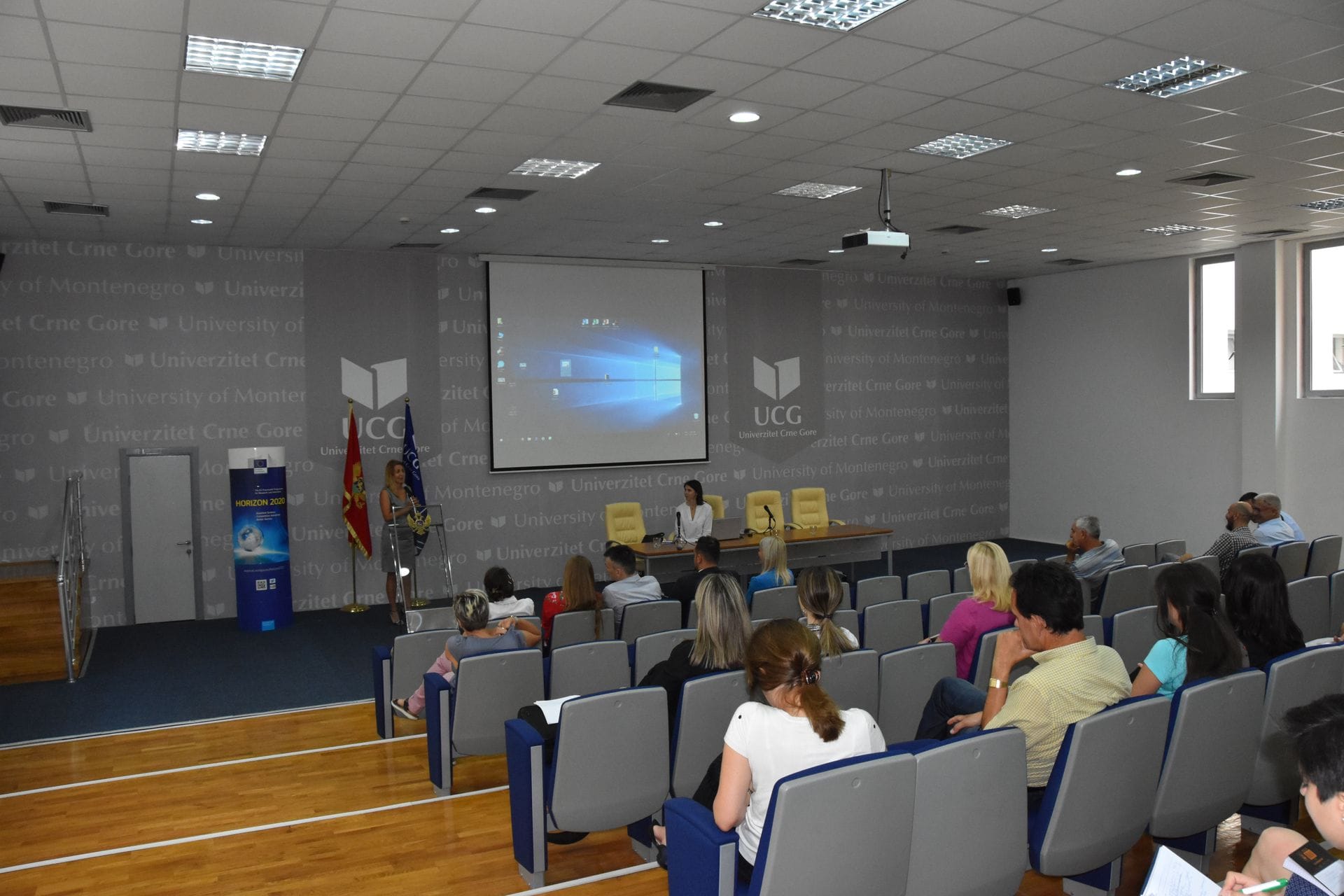
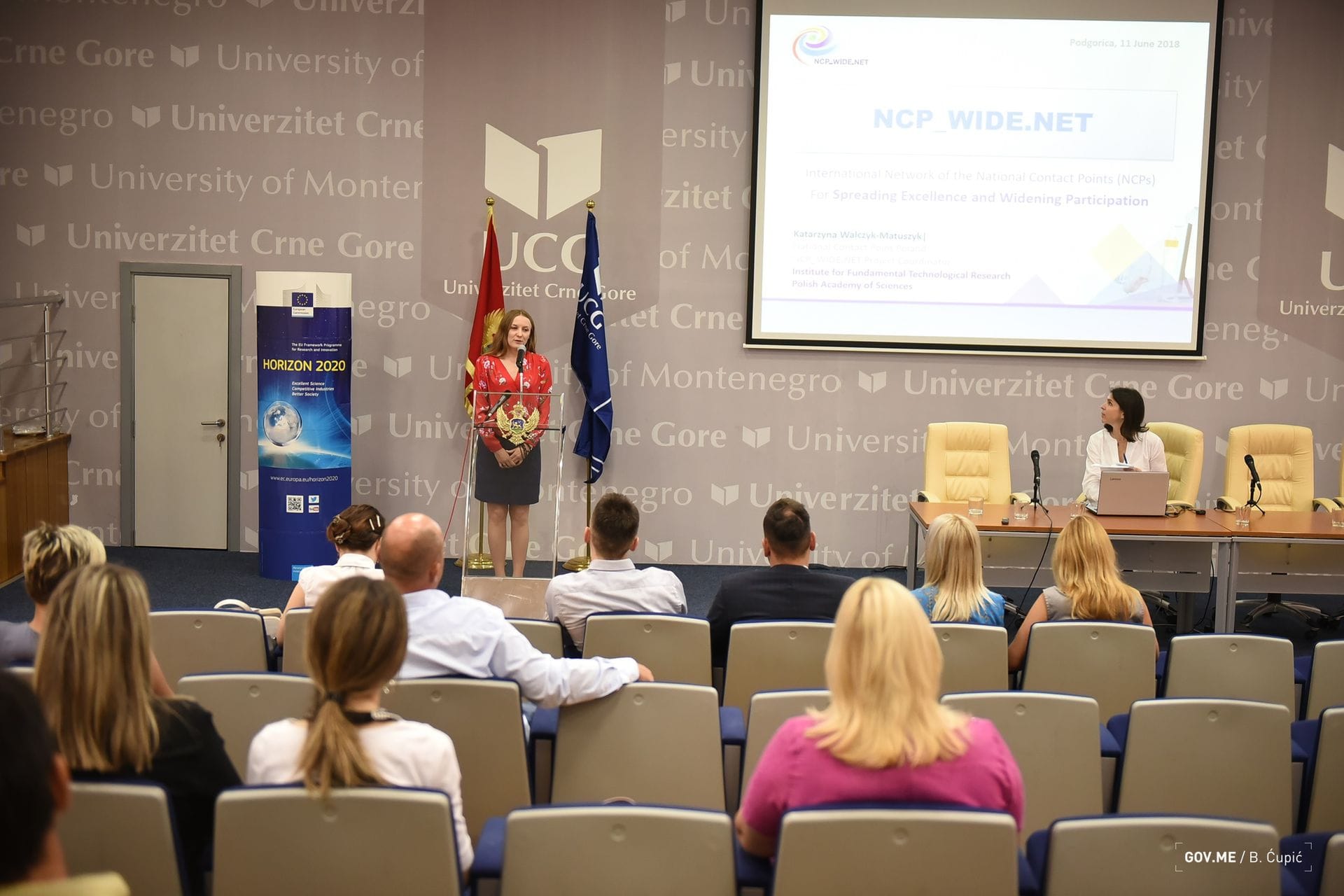
In her address today, Professor Crnojević Bengin pointed out that the Western Balkans research community had knowledge and potential, but that it needed courage to pursue its vision. Scientific-research community ought to be aware of the needs of the industry, offering adequate solutions because its primary mission in contemporary world must be to strengthen the industrial and economic potential of a country. When it comes to innovation, consideration ought to be given to product sustainability and impact on society at all times.
Prof. Almir Badnjević, a delegate in the European Alliance for Medical and Biological Engineering & Science (EAMBES) and one of the advisers in this convocation for issues of regulations, directives and standards in this field, with a special focus on medical devices, shared his experiences in developing a new research area in Bosnia and Herzegovina and in training. The International Federation for Medical and Biological Engineering rewarded the research and the paper written by Prof. Badnjević and several young scientists, declaring it the best in the world in the field of clinical engineering for 2018.


As part of the forum, those present were also addressed, via video-link, by the representatives of the European Commission from Brussels, Ms. Magda de Carli and Ms. Annamarie Zonno (EU), who spoke about the European Union’s strategy for fostering excellence in widening countries.
The forum was closed by the Minister of Science, Dr. Sanja Damjanović, who familiarized the participants with the Initiative for the Establishment of the South-East European International Institute for Sustainable Technologies, as well as with the political and scientific steps that preceded the regional project, which aims to provide a large scientific infrastructure and to be a regional centre of excellence.
The option chosen for this regional project – Hadron Cancer Therapy and Biomedical Research with Protons and Heavy Ions, presents the most modern method of treating a large number of cancer types. The project would be unique in the world as the Institute would devote 50 percent of its operating hours to research, which no other institutions do. Establishing such a regional centre of excellence would significantly foster economic development, improve living standards, create attractive jobs – especially for young people, and reduce the talent outflow, which is one of the biggest problems in the region.
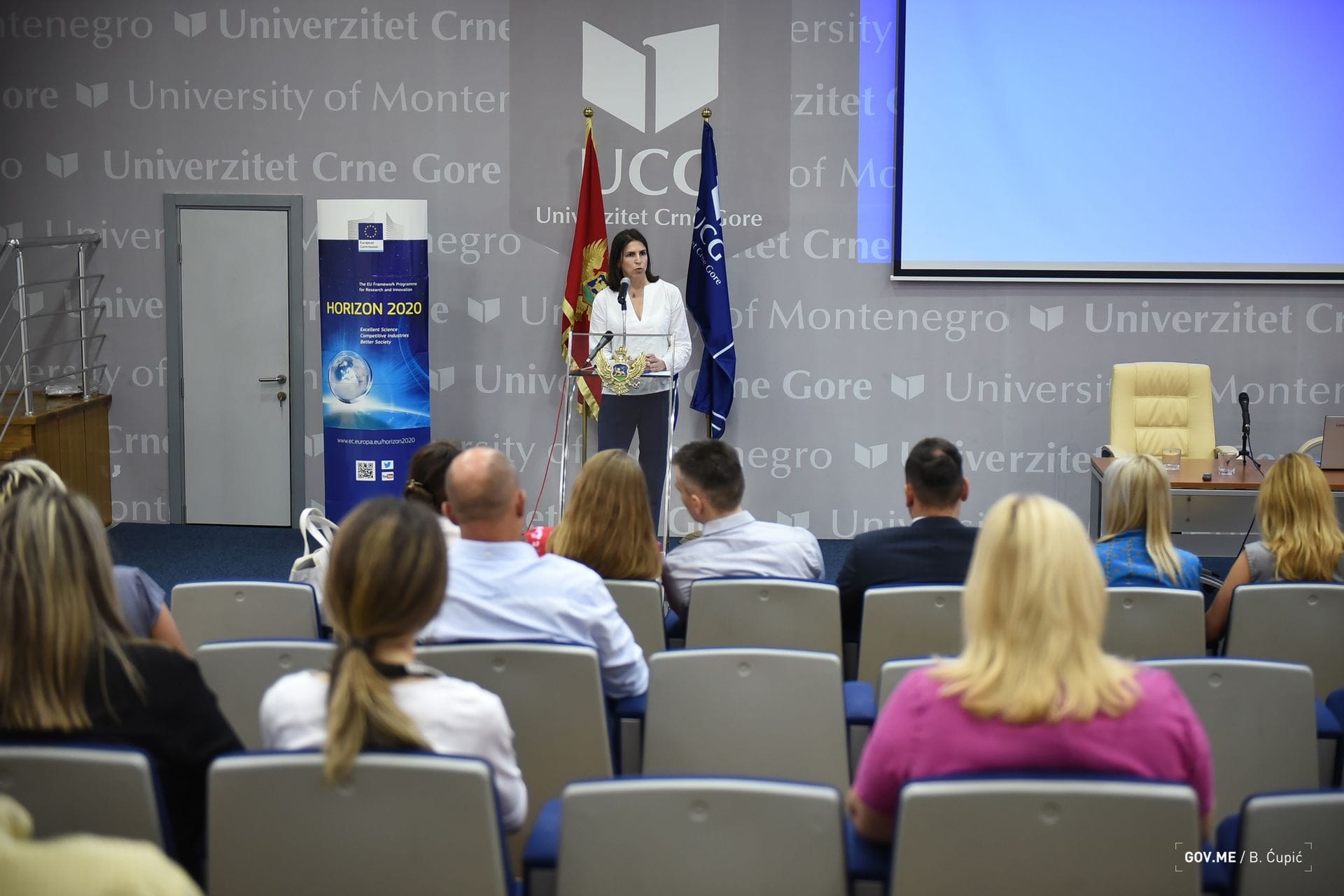
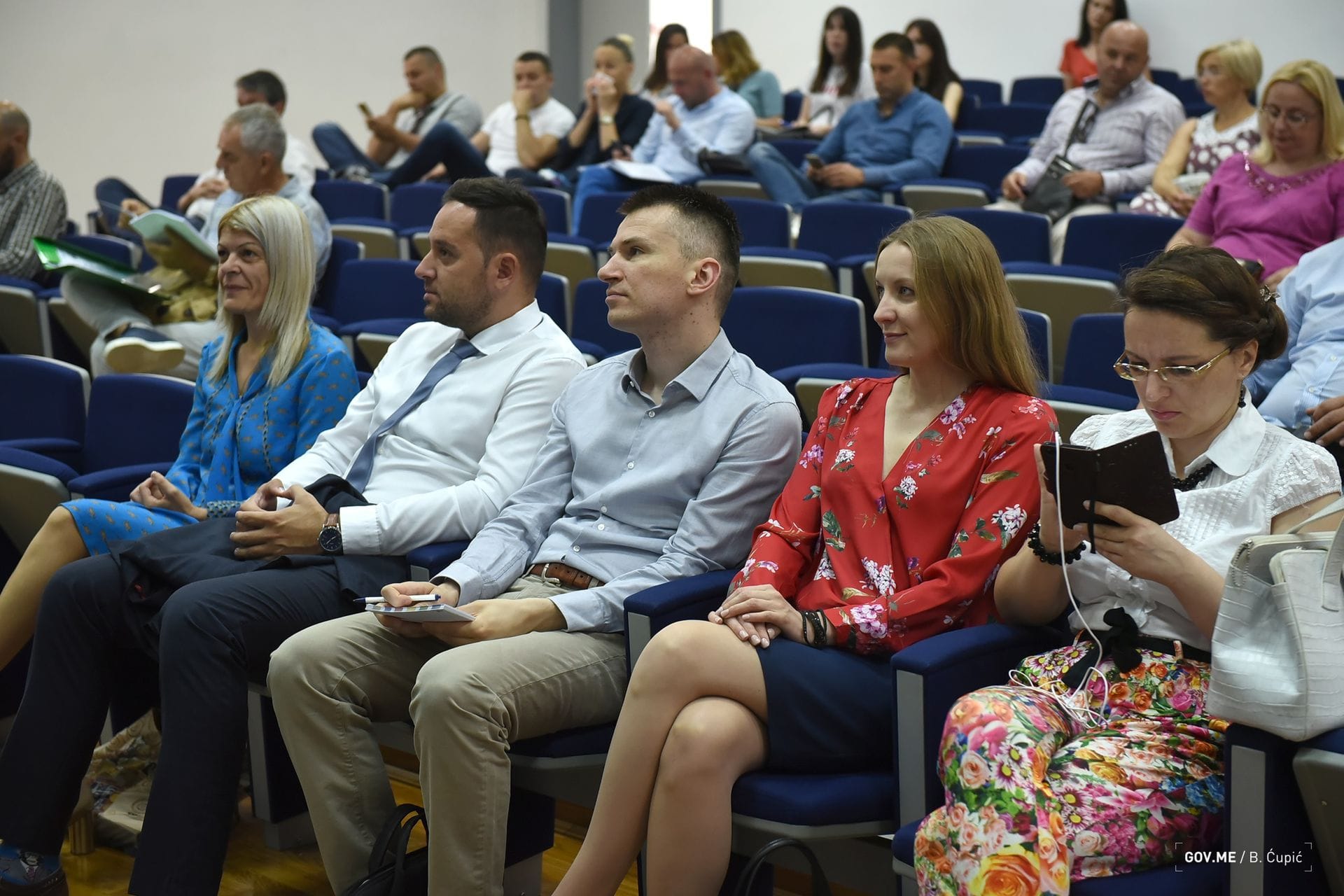
The forum was closed by the Minister of Science, Dr. Sanja Damjanović, who familiarized the participants with the Initiative for the Establishment of the South-East European International Institute for Sustainable Technologies, as well as with the political and scientific steps that preceded the regional project, which aims to provide a large scientific infrastructure and to be a regional centre of excellence.
The option chosen for this regional project – Hadron Cancer Therapy and Biomedical Research with Protons and Heavy Ions, presents the most modern method of treating a large number of cancer types. The project would be unique in the world as the Institute would devote 50 percent of its operating hours to research, which no other institutions do. Establishing such a regional centre of excellence would significantly foster economic development, improve living standards, create attractive jobs – especially for young people, and reduce the talent outflow, which is one of the biggest problems in the region.


As part of its main research and innovation programme, Horizon 2020, the European Union has opened up opportunities for projects that support raising the level of scientific and innovation excellence in countries with a lower level of development. Recently, a competition for twinning projects has been launched, and a call for the ERA Chair is about to be opened, while in 2020 a new call is planned for large “Teaming” projects, intended for new centres of excellence.
Tomorrow, on 12 June, participants will be able to get acquainted with the H2020 competitions (WIDESPREAD-03-2018) aimed at spreading excellence, as well as to learn how they can build their position on the European map of scientific excellence.
The workshop will be held in the meeting room of the Ministry of Science, in the period from 8 to 12 am.
Tomorrow, on 12 June, participants will be able to get acquainted with the H2020 competitions (WIDESPREAD-03-2018) aimed at spreading excellence, as well as to learn how they can build their position on the European map of scientific excellence.
The workshop will be held in the meeting room of the Ministry of Science, in the period from 8 to 12 am.
Related articles:
Request for prequalification Jan 17, 2025
Is this page useful?
